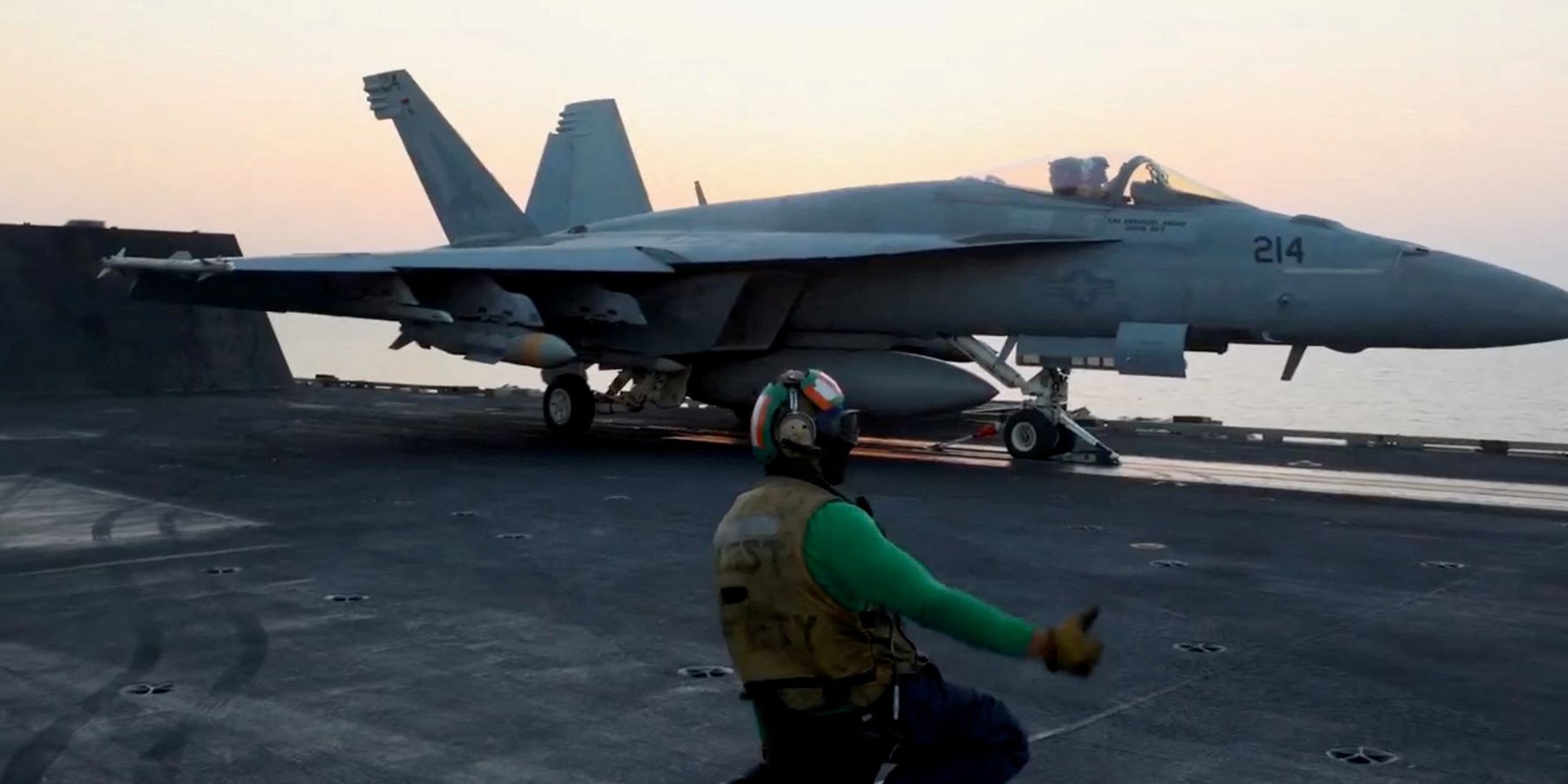Amid its persistent, so-far largely ineffective aerial campaign against Yemen’s Houthis, the U.S. may now move to support Yemen’s internationally recognized government in a ground operation against them.
Indeed, the WSJ reported yesterday that the “U.S. is open to supporting a ground operation by local forces” in Yemen. U.S. officials told the WSJ, however, that the U.S. hasn’t finalized a decision to do so, nor is it leading relevant ground operation talks. However, the paper reported that American private contractors are providing advice to Yemeni factions.
Speculation of some sort of anti-Houthi ground campaign in Yemen has bubbled up for weeks, sparking fears that the country’s civil war, made dormant by a 2022 ceasefire that largely held after its lapse months later, could reignite.
CNN reported on April 6, for example, that Yemen ground operation preparations were underway, and could “involve Saudi and US naval support in an attempt to retake the port of Hodeidah." And Aida Chavez previously reported in the Intercept on March 17 that “U.S.-backed proxy forces in Yemen are likely to restart their ground operations against the Houthis — proxies that will almost certainly be receiving U.S. intelligence and other support."
“The idea that Trump may provide U.S. support to reignite this civil war is horrifying, because it will be extremely bloody,” Dr. Annelle Sheline, Research Fellow in the Middle East program at the Quincy Institute for Responsible Statecraft, told Responsible Statecraft.
“Such a war would further immiserate the Yemeni population, already the poorest in the Middle East. In 2018, the UN declared Yemen to be the world's worst humanitarian crisis, with 22 million people at risk of starvation due to the war. Restarting the civil war would again put millions of people at risk of famine,” she said.
Publicly, U.S. officials have remained tight-lipped on possible involvement in on-the-ground operations in Yemen.
“I can't talk about that stuff from the podium, but we have ways of conducting sensitive site exploitations without ground troops on the ground,” Sean Parnell, United States Assistant to the Secretary of Defense for Public Affairs and Chief Pentagon Spokesman, said about possible U.S. involvement in ground operations in Yemen during a March 17 Pentagon press briefing.
Asked early last week about possible U.S. support for a ground operation in Yemen, likewise, a defense official told Responsible Statecraft on background that details surrounding possible future operations could not be disclosed “due to operational security to ensure the safety and security of…service members.”
The DoD and CENTCOM public affairs did not respond to requests for comment regarding yesterday’s WSJ reporting.
Possible U.S. assistance in a new Aden-led ground campaign may not only be deadly; if previous involvement in Yemen is of any indication, it may well prove ineffective.
"Under Presidents Obama, Trump, and Biden, the U.S. provided significant support to the Saudi-led coalition that fought a war to oust the Houthis from 2015 to 2022,” Sheline explained. “Even with a massive air campaign as well as a ground invasion led by the Saudis and UAE in southern Yemen, the anti-Houthi coalition was unsuccessful, partly due to the infighting among the Yemeni members, who beyond their antipathy towards the Houthis, agreed on little else.”
If the U.S. wants the Houthis’ Red Sea ship attacks to stop, rather, they might take the Houthis’ stated objectives for their attacks — namely, pressuring Israel to end its onslaught of Gaza — into account.
“The Houthis have consistently said that they will end their attacks on ships traversing the Red Sea when Israel ends its war on Gaza. During the period of the ceasefire from mid January to early March, the Houthis upheld this commitment and did not attack ships,” Sheline explained.
“It was only after Israel violated the ceasefire by preventing any aid from entering Gaza after March 2 that the Houthis declared that they would again attack Israeli ships, and subsequently, the Trump administration bombed them (as people may recall from Signalgate).”
















